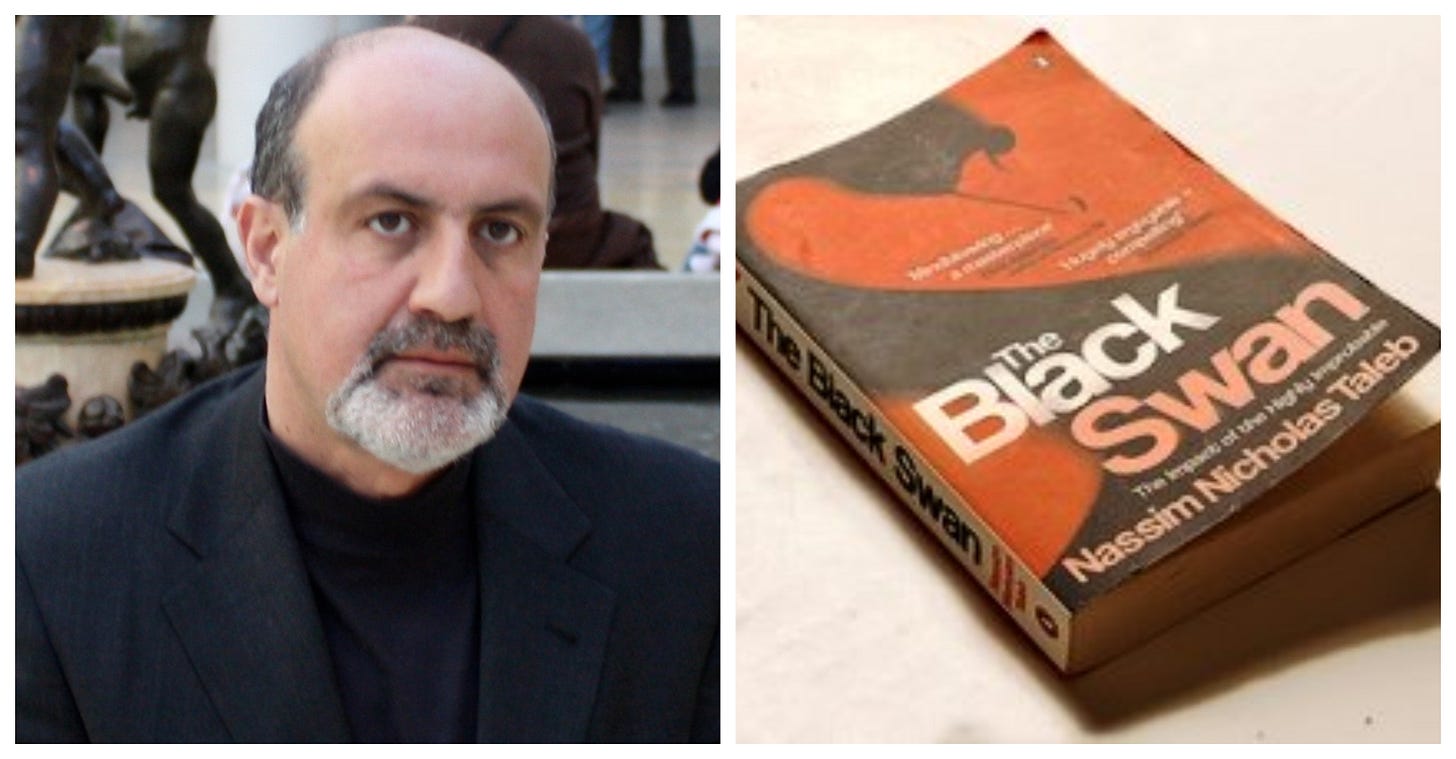Is COVID-19 or its response the black swan?

Nassim Nicholas Taleb popularized the word ‘Black Swan’ and wrote an incredibly famous book on it. He describes it as a sudden unexpected event with massive impact that can disrupt our life in a major way.
The book is not an easy read. I had the privilege of listening to him live twice. Very soon you could recognize that he has a clear critical and contrarian thought process.
So as per the rules of Taleb, can COVID-19 be labelled as a black swan? May be not. Many viruses have come and gone. It is estimated that when the H1N1 swine virus hit the world about 700 million to 1.5 billion were affected. Close to 575,000 people died on account of it. But the world did not react the way it did for COVID-19. There were no lockdowns or shutdown of the global economy.
The way the world has reacted to COVID-19 for good reasons has made it a ‘Black Swan’. This has changed everything for us, and we are left analysing the consequences and repercussions of the unprecedented responses from the governments, loss of liberties and ultimately more deaths than from the virus itself. We will get to many of those as we look into many aspects of it.
Last Friday morning, we had the release of the important retail sales and industrial production. Both figures came much worse than expected and probably the worst ever. The year over year decline was 21% for retail sales and 15% down for industrial production.
This takes us to what could be the projections for the Q2 GDP. The Atlanta Fed is expecting it to be down 42% but we think it could be even lower than 50%.
The downside risks associated with the lock down, job losses, government spending and much more are going to create such economic damage that the pundits are grossly underestimating. Like in past instances of situations closer to this, the fiscal stimulus had future force multiplier impact or similar payoff. Current ones are pure government assisted life support. To rise from something that is 50% down you need to rise 100% to breakeven. Most of the longer-term risks are to the downside and not to the upside. Further gains in the markets are completely disconnected with the underlying economic and market fundamentals. We will develop the technical and sentiments of the markets before Monday opening.
When Jerome Powell was nominated as Fed Chairman, think he took the position with lot of idealistic views and lofty ideals. Many times, he was forced to move with the changing tides of the market but above all he had to fall in line with a president who was very vocally critical of his policies.
With the Pandemic taking control of Fed policies and goals, the Fed Chairman has moved drastically in ways that the Fed will endanger the future wealth of the nation and even many other countries. In a crisis situation, nobody is a capitalist. The Fed’s monopoly type printing of money, handouts, buying of corporate bonds and further involvement in many other areas of business will have many unforeseeable longer-term impacts. Market analysts and economists are not discussing those at the moment. We will hear more on this in the coming days.
On the political front, the Trump administration announced yesterday that it will block semiconductor sales to Chinese tech company Huawei. Chinese retaliation could also come strong and hard. US companies are already moving out of China. So far, Indonesia is the major beneficiary. When the economies reopen fully there could massive supply chain disruptions.
There is no doubt the world is seriously messed up on all fronts.
Abraham George is a seasoned investment manager with more than 40 years of experience in trading & investment and portfolio management spanning diverse environments like banks (HSBC, ADCB), sovereign wealth fund (ADIA), a royal family office and a hedge fund.


